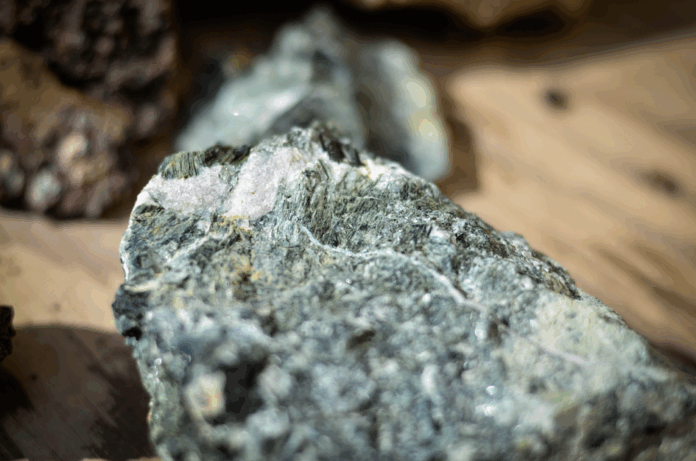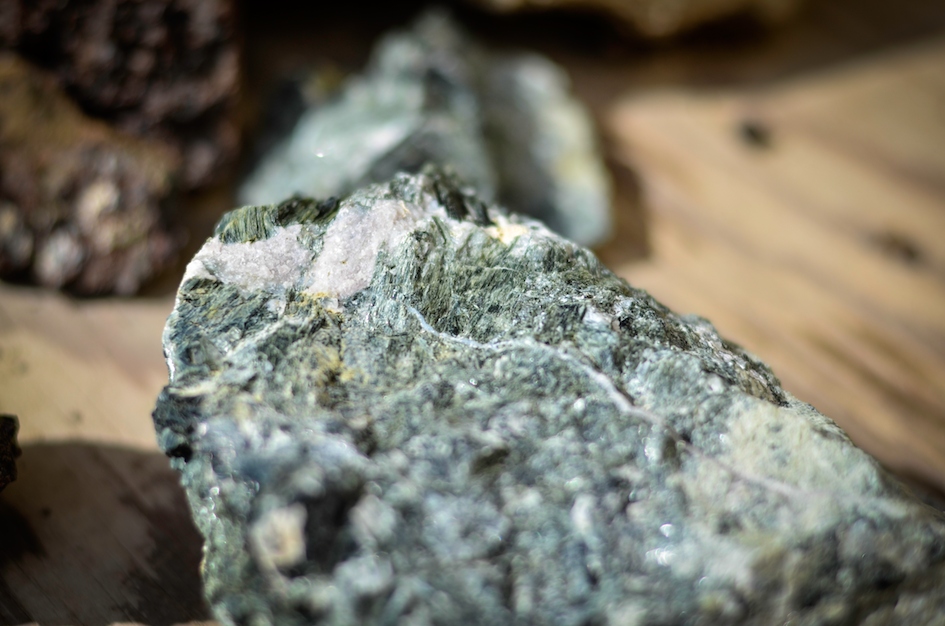A one-year exploratory drilling operation on mining claims within a mile of Yellow Pine is underway as of this week.
Resolution Minerals of Adelaide, Australia, announced Tuesday that it began exploration of its Horse Heaven Project, which was authorized earlier this summer by the Boise National Forest.
“We are excited to begin drill-testing our high-priority targets at the Horse Heaven Project,” Resolution Managing Director Ari Zaetz said. “This is another significant step forward in our larger plan to develop an end-to-end solution that will provide a domestic supply of antimony and tungsten in the USA.”
A diamond core drilling rig will bore 20 holes up to 1,000 feet deep on what’s known as Golden Gate Hill, which is less than a mile from Yellow Pine. Core samples will then be analyzed for gold, antimony, and tungsten mineralization.
Resolution expects the work to be complete in October. The Boise Forest’s approval allows the company one year to complete the work from the day it begins.
The Horse Heaven Project spans 22 square miles, borders Johnson Creek and the East Fork South Fork Salmon River, and shares its eastern boundary with Perpetua Resources’ Stibnite Gold Project.
Current exploration of the 14,374-acre project zone is centered on two main areas known as Golden Gate Hill and Antimony Ridge, both of which are sites of historic mining operations.
Drilling work approved by the Boise Forest will take place on Golden Gate Hill, while soil samples will be collected from Antimony Ridge.

Resolution eyes next drilling phase
Meanwhile, Resolution is collecting baseline environmental data to include with a new exploration plan that calls for expanded drilling operations. That plan, which is still being developed, would also be subject to review by the Boise Forest.
If approved, the next phase of exploration is expected to “allow for an expanded level of surface disturbance, including upgrading the existing road network and the construction of new drill roads,” the company said.
Resolution raised $1.9 million to fund the exploration work by issuing 146 million shares of the company’s stock to S3 Consortium Holdings, a Melbourne, Australia, conglomerate that controls several investment businesses.
Critical minerals strategy
The company also hopes to secure funding from the federal government through grant programs leveraged by Perpetua to the tune of more than $80 million since 2021, as Valley Lookout reported.
Without donors like you, this story would not exist.
Make a donation of any size here
The federal funding is tied to the Department of Defense’s efforts to create domestic supply chains for critical minerals, including antimony and tungsten.
This summer, Resolution hired Thorn Run Partners and Clewett Global Services, two prominent government relations firms based in Washington D.C. The firms are expected to help expedite permitting approvals and secure federal funding, according to Resolution.
Clewett specializes in government relations for mining companies and is particularly experienced with critical minerals projects, according to the company’s website.
“(Clewett) works alongside mining companies who need to engage with and shape government decision making,” the website said.
Antimony and tungsten are both used in military munitions. There are currently no mined sources of either mineral in the United States. China, the world’s leading antimony producer, banned exports of the mineral to the United States last year.
Perpetua’s Stibnite mine could produce an estimated 150 million pounds of antimony, though nearly all the mine’s value is tied to 4.8 million ounces of gold it is expected to produce.
Stibnite is in line to become the only mine in the country that produces antimony once Perpetua completes an estimated three years of construction to build the mine.
Exploration timeline
Even if Resolution’s Horse Heaven exploration reveals mineralization worthy of developing a mine, the company would be years away from being able to extract gold and critical minerals.
It would first need to submit a mining plan of operations to the Boise National Forest, which would be the lead permitting agency on an environmental review of the plan that would include local, state, and federal agencies.
Perpetua began exploration on its Stibnite Project in 2009 and drilled 390 boreholes before submitting a mining plan in 2016. That plan, which was revised multiple times by Perpetua, was approved earlier this year by the Payette National Forest.
Horse Heaven is currently Resolution’s only project in the United States. The company is also exploring potential uranium, antimony, gold, copper, and silver deposits in Australia.
Resolution bought the Horse Heaven Project earlier this summer for about $650,000 and nearly 450 million shares of the company’s stock, which is listed on the Australian Securities Exchange. Each share was worth about three cents as of Wednesday.
Earlier this month, the company received an unsolicited offer to sell the project for $145 million to Snow Lake Energy of Winnipeg, Manitoba. Resolution said it is “not minded” to agree to the deal, citing a high percentage of stock rather than cash, but remains in negotiations with Snow Lake.
Resolution bought the project from a Nevada holding company owned by executives of Stallion Uranium Corp., a Vancouver, British Columbia, mining company that began exploring the Horse Heaven Project in 2021.
Late last year, Stallion sold the project for $2.6 million after reporting “significant” evidence of gold and antimony found during initial exploration work. Stallion initially acquired the 699 mining claims for $953,000.






